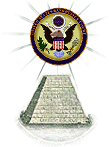#BankruptcyMisconduct is pondering a page on #CherylMills / #HillaryClinton because their mushrooming legal predicament parallels the #DiscoveryFraud so often seen by dirty #HedgeFunds and their #CrookedLawyers. (Like we've seen in eToys with Romney and #PaulTraub, & #HowardMarks with #JonesDay crooks)
You've got to read the actual transcript of Ms. Mills deposition, because no one so obviously skirts telling the truth like a lawyer. Which makes the SEVEN lawyers surrounding Mills, objecting and protecting her from answering, seem sooo superfluous.
And the funniest thing is, the BIG EXCUSE used by the cadre of lawyers on Mills behalf from answering the real meat of the questions, related to Pagliano and the eMail server, was #AttorneyClientPrivilege. That excuse is the "we are lawyers so we can't be held accountable from crimes that normal citizens must avoid".
Firstly, Attorney/Client privilege is only held by the client, and Hillary Clinton has publicly said that she wants everybody to talk and help the investigation. Any investigator worth a nickle would walk Hillary into court and force her to revoke that public statement. Secondly, Attorney/Client privilege terminates by the Crime-Fraud exception. This seems obvious to normal people, if the lawyer took part in a crime, she can't claim a privilege to protect her co-criminal.
ABA Model Rules
But there is another wrinkle. Cheryl Mills was a government official, it's only a coincidence that she is also a lawyer. There was no attorney-client relationship in fact, and it would be quite odd for one government official to get permission from the State Department to simultaneously represent another government official, while each carried out their own tasks. In short, it is frivolous to claim that Cheryl Mills was acting as counsel to Hillary on the eMail conduct. But even if it did happen, such a relationship is clearly prohibited by the Rules of Professional Conduct for lawyers:
Rule 1.11: Special Conflicts of Interest for Former & Current Government Officers & Employees
Client-Lawyer Relationship
(a) Except as law may otherwise expressly permit, a lawyer who has formerly served as a public officer or employee of the government:
(2) shall not otherwise represent a client in connection with a matter in which the lawyer participated personally and substantially as a public officer or employee, unless the appropriate government agency gives its informed consent, confirmed in writing, to the representation.
|

 CA Bar Complaint (14868)
CA Bar Complaint (14868) SONICblue - A Claims Trader's Fees Reimbursed for Alerting about Attorney Misconduct (12807)
SONICblue - A Claims Trader's Fees Reimbursed for Alerting about Attorney Misconduct (12807) Haas v. Romney 2nd Amended Complaint (12157)
Haas v. Romney 2nd Amended Complaint (12157) CA Bar **Revised** Complaint (11309)
CA Bar **Revised** Complaint (11309) SEC filings by client of PriceWaterhouseCoopers and HBD (11006)
SEC filings by client of PriceWaterhouseCoopers and HBD (11006) Doug Pick Esq. advice on Death Threats (10890)
Doug Pick Esq. advice on Death Threats (10890) Judicial Complaint against Judge Paul G. Hyman by Mary Alice Gwynn (10580)
Judicial Complaint against Judge Paul G. Hyman by Mary Alice Gwynn (10580) Shock! Peck's Lehman case colored by fraud? (10279)
Shock! Peck's Lehman case colored by fraud? (10279) SEC - so simple even a Caveman can see it! (9844)
SEC - so simple even a Caveman can see it! (9844) CABAURHBDreq1 (9614)
CABAURHBDreq1 (9614)

